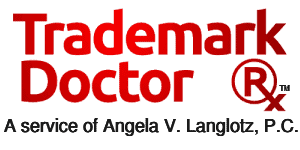When it comes to selling your company, a trademark can be either an asset or a liability.
A registered trademark is an asset, because it is evidence that you own the brand listed on the trademark application for certain goods and services. The trademark registration is legal proof that you are the owner of the brand, and that you have the exclusive right to use the trademark listed on the trademark certificate to sell the goods and services listed on the trademark certificate. This right to exclusive use also extends to any marks that are “confusingly similar” and extends to use of the mark on any goods or services that are “related” to the goods and services listed on the trademark certificate.
Trademark Registrations Help Business Buyers
For the business buyer, a trademark registration is his assurance that the seller has the legal right to use the trademark, and that those rights are presumed to be the best; the trademark certificate is proof of ownership. In the event of a future contest about the trademark rights, the business buyer has the upper hand against another claimant of rights to the mark, because the trademark certificate proves his ownership. Moreover, after 5 years, if the proper documents are filed at renewal, the trademark registration becomes incontestable for all but certain very limited reasons.
Trademark Registrations Are A Valuable Asset
A trademark registration is an asset that boosts the value of the business because intellectual property assets like trademarks, copyrights, and patents are considered business assets that have a value, just as surely as the real estate and equipment owned by the business. The stronger and more popular the brand, the more valuable that trademark is, and the more it adds to the bottom line valuation of the business.
A Lack Of A Trademark Registration Is A Liability
A trademark can also be a liability. If your trademark is unregistered, you may still have some rights, but those rights are not presumed. In the event of a conflict over trademark rights, you will have to prove a number of things that, if you had a trademark certificate, would have been presumed just by your possession of a trademark registration.
These facts that now must be proven (usually at great expense and hassle) are things like the date you first began use of the trademark; the goods and services with which the trademark was used, proof of how the mark was used in commerce, and the geographic extent of your marketing. If you didn’t keep records of all of your invoices, advertisements, office addresses, and other documents that might have proven the extent of your use of the trademark, then you may lose the litigation, even though you were the first user of the trademark — because you didn’t have the necessary proof.
For A Business Buyer, An Unregistered Trademark Is A Trademark Infringement Lawsuit Waiting To Happen!
For a business buyer, an unregistered trademark is a liability because the buyer has no assurance that the seller of the business actually owns the trademark. This lack of proof requires extra due diligence of the buyer, who now has to procure a trademark search to expose other possible claimants to the trademark rights. A business sale that could have otherwise gone smoothly is now subject to extra delay, expense, and uncertainty — and all because the business owner was too cheap or too lazy to attend to this detail. Many buyers will simply walk away from such a poorly-run business, or will demand a hefty discount in the purchase price to offset the uncertainty of the ownership of the brand.
I’m on Facebook! “Like” my facebook page, to be notified every time I go LIVE. Do you have trademark questions? Message me on the Trademark Doctor Facebook page, and I’ll answer your questions on a future Live video.
Contact Dallas, Texas trademark attorney Angela Langlotz today to get started on a trademark application for your valuable brand.

